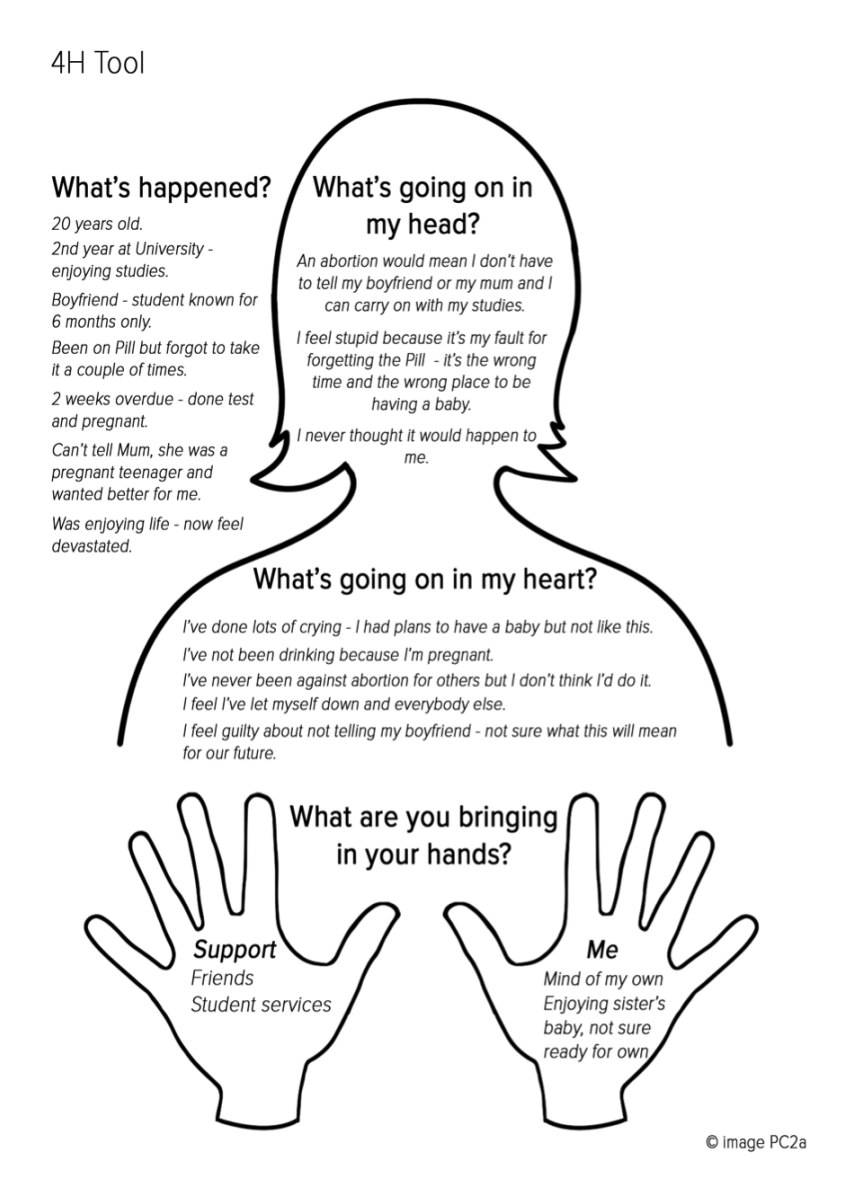'I was raped. I'm 12 weeks pregnant.' I sat speechless in my clinic while waves of shame ran over me for being a male of our species. My patient had a baby on her arm, a toddler in the other and her address on the notes was 'Homeless'.
After a brief conversation I did what most GPs would do and reached for the pad of official Abortion Law forms to tick the clause saying '... The pregnancy has not exceeded its 24th week and that the continuance would involve risk, greater than if the pregnancy were terminated, of injury to the physical or mental health of the pregnant woman.' Safe, simple and sorted.

After 20 years of research, I am now convinced that mantra is untrue.
Suddenly, seeing what I was doing, she stood up with a red face: 'I am not going to do an abortion on this baby! What has he done wrong?' Jaw dropping, I was covered in fresh shame for my paternalism, rush and bad care. She didn't want that. She wanted me to help.
Women tell me they are so lonely in their plight. Christian women can be in the worst place, where they find unconditional acceptance from the abortion clinic staff but not in their church. 'Oh, I could never tell my church; I just quietly went to the clinic.'
Indirect evidence suggests that the stated national average, 'One in three British women will have an abortion by age 50,' applies among Christians and Muslims as well. But didn't Christ accept without judgement the condemned sinner who appealed to him on the cross? (Luke 23: 39-43).
How can you help your pregnant friend?
One thing I find so frustrating is how this issue is polarised with pro- and anti-abortionists shouting at each other across a deep divide. In the middle is the ordinary pregnant woman who needs someone to talk to – maybe you.
The 50-year-old law is a broken safety net that has failed millions of our women, their partners and their unborn. With over 8 million British babies aborted so far, our communities have lost a lot.
So firstly, never forget the power of unconditional love and a listening ear – maybe your ear. We can all offer this. Without you there's a high chance your friend will be railroaded into a choice she is not sure she wants, ignorant of the after-effects and unable to unravel her head from her heart. So, how is real choice found?
Three essentials for choice
After 40 years of listening to women I think they need three essentials – three steps which you can help your pregnant friend, daughter or partner to find.
First she needs a simple pathway to making her choice. Within hours of conception the new embryo inside her is sending out hormone signals that affect her thoughts, her feelings and her body. In four short chapters of our book an experienced female pregnancy counsellor offers a tested road to making choices. This will lead to your pregnant friend being able to unravel things in her head, beliefs in her heart, the happenings in her life and strengths in her hands – perhaps the support networks around her. A simple diagram she can fill in herself can help her see her personal position now. The 4H Tool is a good example, and this is one already filled in for Claire.

Second, your pregnant friend needs options, otherwise there is no choice! Women feel as if there is no choice surprisingly often – like that churchgoer we heard from earlier. There are three basic options: parenting, adoption and abortion. Any of these options will affect the rest of her life, so for these avenues, she may need special information and Help sources which are at the back of our new book.
Third before choosing she needs to know all possible side-effects that can affect anyone during or after an abortion, however carefully it's done.
For instance, an early and common side-effect is infection in the woman's delicate organs of reproduction. This happens in about one in 10 women ('The Care of Women Requesting Induced Abortion', RCOG, November 2011).
Infection can lead to chronic pain and glued up organs which may not be able to reproduce a baby when wanted.
In the longer term the abortion can affect major aspects of her life such. Here are just two.
Mental depression and suicidality is linked with prior abortion. Pro-abortion New Zealander Prof David Ferguson thinks his government should warn all women of this before abortion.
Premature birth of the next pregnancy is linked to prior abortion. The risk rises by about a third after one abortion and two thirds higher after two abortions. This is a strong statistical link. Prematurity brings multiple risks to the baby such as death or brain damage.
Why don't pregnant women get given more of this information?
As with the tobacco causing lung cancer story, there are vested interests. But with so many and such losses in health and people, it's vital we all remember: it's the woman's health, her family's future including the father of the baby which are all part of her choice.
Let a Yorkshire lass have the last word: 'As a teenage mum living at home, it's been hard to watch friends doing teen stuff and I feel I've missed out on those years. But I'm glad I kept my boy and now I know it's been the right thing.'
Dr Mark Houghton is a medical doctor, writer and broadcaster. He is a member of the Royal College of General Practitioners, has the Family Planning Certificate and diplomas in Obstetrics and Gynaecology, Child Health and Anaesthesia.
'Pregnancy and Abortion Your Choice' is by Dr M Houghton, Dr Esther Luthy and Prof J Wyatt. All royalties from this book go to the support of pregnant women and their near families.













